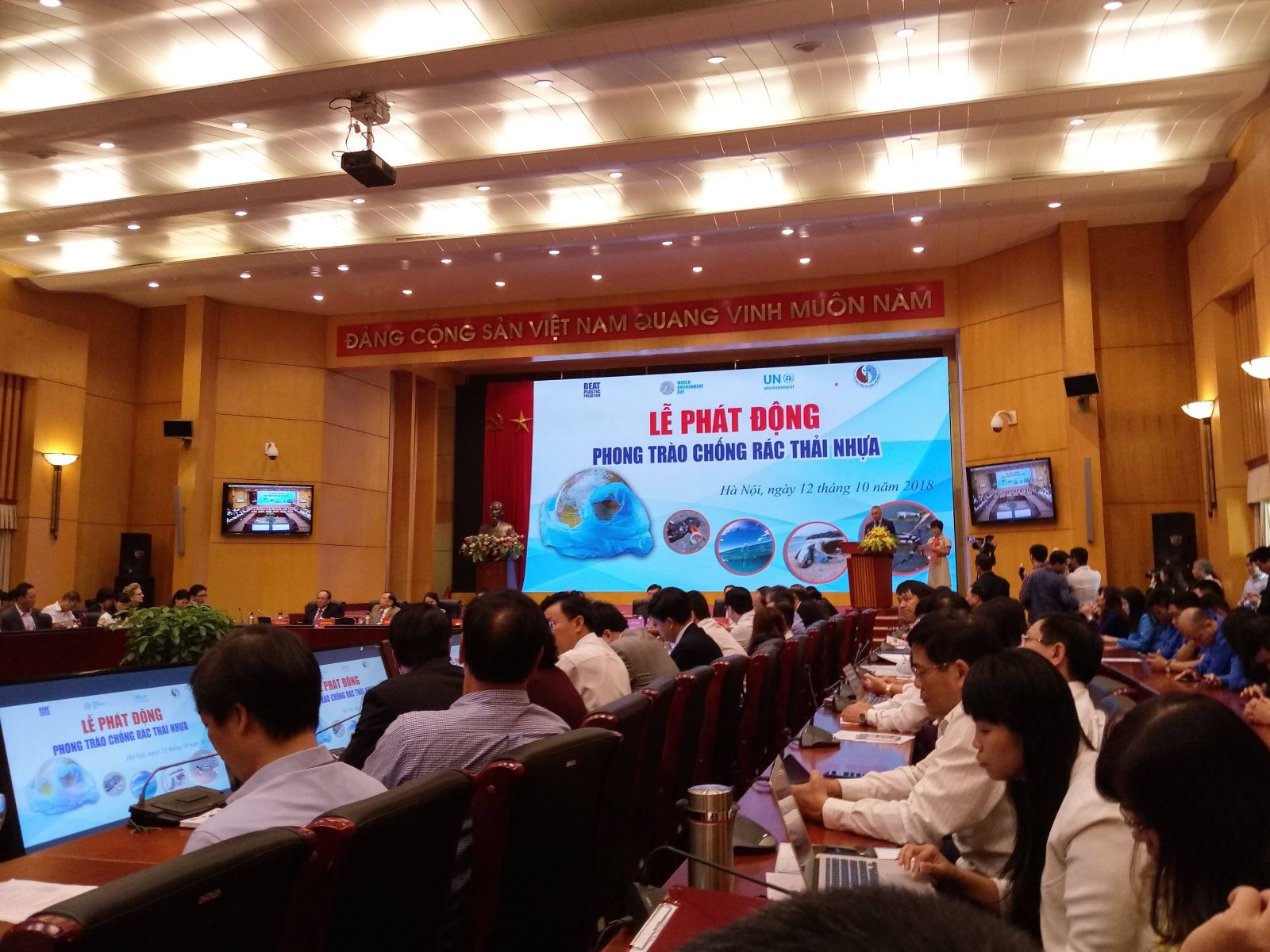Plastic waste is a major source of pollution affecting the environment, human health and well-being. It is also a major threat to coastal nations currently enjoying economic benefits from fishing and aqua-culture.
 Globally, up to 5 trillion plastic bags are used each year, and 1 million plastic bottles are bought every minute. 90% of bottle and tap water contain plastic particles. According to United Nations Environment Programme (UNEP), it is estimated that in the next 10-15 years global plastic production is projected to nearly double.
Globally, up to 5 trillion plastic bags are used each year, and 1 million plastic bottles are bought every minute. 90% of bottle and tap water contain plastic particles. According to United Nations Environment Programme (UNEP), it is estimated that in the next 10-15 years global plastic production is projected to nearly double.
Plastic pollution across Asia is a major problem. In fact, 60% of all plastic that ends up in our oceans comes from only 6 countries in Asia, including Vietnam. Vietnam is among the top 5 countries responsible for the estimated 13 million tons of plastic dumped in our ocean every year. Single-use plastics is widespread and waste management capacity is limited in Vietnam, causing the rising burden from plastic waste to the environment and public health.
It is time to call for collective action from all of us to combat one of the great environmental challenges of our time: such collective action is needed from governments, the private sector, as well as citizens as consumers who need to take responsibility.
Governments should lead by enacting strong policies to push for a more circular model of design and production of plastic waste. Robust legislation must be enacted to curb the production and use of unnecessary single-use plastics.
The private sector must innovate, adopting business models that reduce downstream impacts of their products. Manufacturers have to take responsibility for the pollution that their products are causing today and make investments in sustainable product design.
Citizens must act as both consumers and informed citizens, demanding sustainable products and by adopting sensible consumption habits and at the same time exercising their buying power by refusing single-use plastics.
Individual actions alone cannot solve the plastic pollution problem and unprecedented actions must be taken. We need to rethink and better devise strategies to design, produce and use plastic products to:
+ reduce single-use consumption;
+ encourage plastic recycling and improve waste management;
+ promote research into sustainable alternatives and solutions that lead to raising awareness and behavior change for a path to a cleaner world. We need to do much more than just cleaning up existing plastics.
In response to the increasing concern of plastic waste, the UN in Vietnam comprising more than 15 organizations together with representatives of approximately 25 embassies and international development partners started a Plastic Pollution Campaign and signed the Code of Conduct on Combatting Plastic Pollution on 4 June 2018.
The UN has taken immediate actions to show how this Code of Conduct can be implemented and make a difference. A UN Joint Action Plan was developed and led by the UN Anti-Plastic Waste Working Group with members from across agencies. UN joint actions have been undertaken in everyday practices in our Green One UN House in Hanoi:
+ We have stopped providing disposable plastic water bottles, take-away drink cups and straws in the UN canteen and at all meetings.
+ Posters to raise awareness of and engage UN staff have been developed and made visible in common places.
+ Plastic bags used in all garbage bins have been replaced with biodegradable ones.
We are committed to turn our offices into action sites of sustainable practices to combat plastic waste. It is a small contribution, but it shows all offices what can be done.
The UN is committed to work side-by-side with the Government of Vietnam, public institutions, the private sector and communities on plastic pollution through technical assistance, policy advice and capacity building. This issue will also be a joint-action agenda for this whole month as part of our commemoration of UN Day on 24th October.
The UN in Viet Nam also supports Viet Nam's regional initiative to tackle ocean plastic pollution which was announced by Prime Minister Nguyen Xuan Phuc at the G7 forum held in Canada and at the Global Environment Facility (GEF) Assembly in Da Nang in June this year.
Combating plastic pollution is crucial to the achievement of the Sustainable Development Goals (SDGs), to which we all are committed. We encourage the government of Viet Nam to promote a holistic circular economy approach and strong policies to address plastic waste pollution, promote sustainable and responsible business for resource efficient and cleaner production, and ensure product design without pollutants.
Vietnam could, with appropriate policies, with businesses being pushed in the right direction through appropriate regulation, and public awareness leading to public pressure, go from being one of the world's main sources of plastic waste to being a driving force globally on innovative and comprehensive solutions.
We welcome MONRE's timely initiative on "Anti-plastic waste Campaign" to kick off the national campaign, calling for joint action from Vietnamese society to significantly reduce plastic waste and save our environment.
Thank you! Xin cảm ơn!